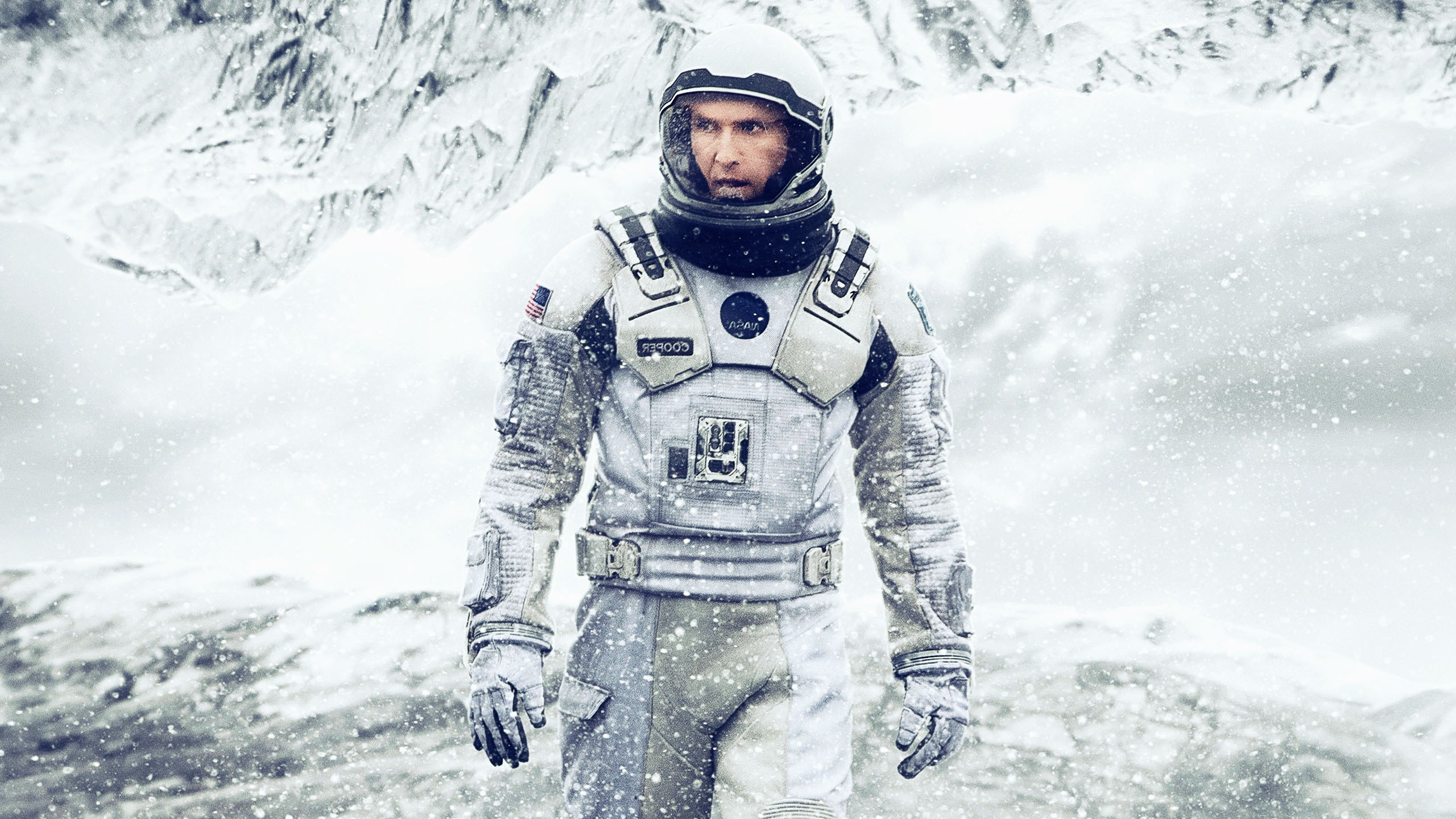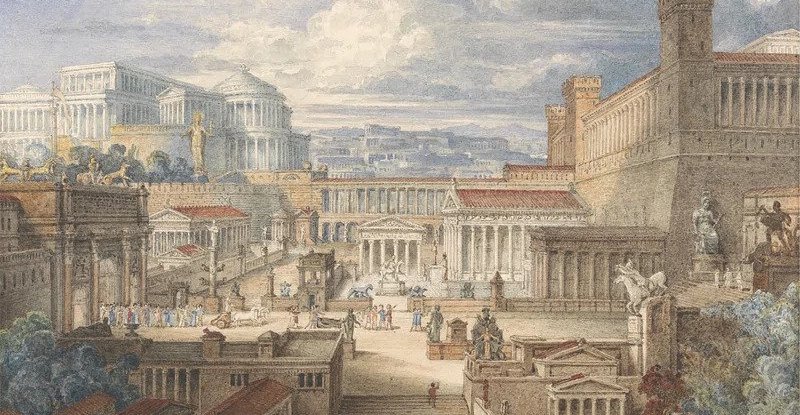
Ancient history, with its sprawling epics, legendary heroes, and profound mysteries, has always been fertile ground for cinematic storytelling. There’s something inherently captivating about tales of gods, pharaohs, and warriors, pulling us back to worlds both familiar and fantastically different from our own. Yet, as filmmakers dive into these rich narratives, they often do more than just document; they reinterpret, they reimagine, and sometimes, they craft entirely new perspectives that shape our understanding of the past.
These cinematic renditions don’t just put history on screen; they often weave their own versions of truth, blending facts with vibrant fantasy and dramatic license. It’s a fascinating process where the line between historical accuracy and creative storytelling blurs, allowing for narratives that resonate deeply with modern audiences, even if they take a detour from scholarly consensus. This isn’t about historical inaccuracies as much as it is about the powerful act of modern myth-making, using ancient backdrops to tell new, compelling stories.
So, get ready to dive deep into a collection of films that, while set in the annals of ancient times, dared to forge their own paths. We’re talking about movies that redefined what we thought we knew, taking liberties with venerable legends and historical accounts to deliver experiences that are undeniably epic, entertaining, and profoundly influential. Let’s unspool how these blockbusters became legends in their own right, transforming ancient narratives into fresh, unforgettable cinematic myths.
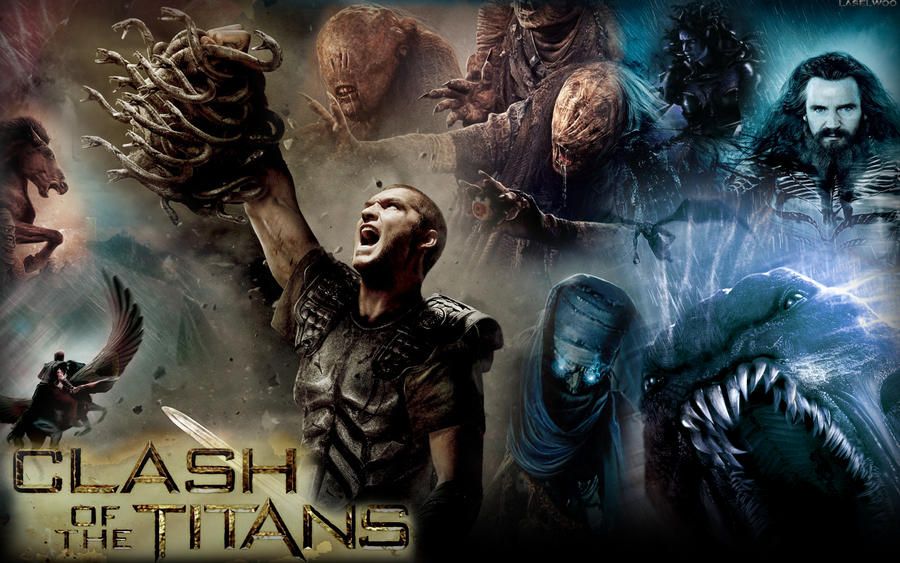
1. **Clash Of the Titans**The ancient world, where gods dramatically flex their power and mortals often find themselves caught in the divine crossfire, is vividly brought to life in “Clash of the Titans.” This film immerses us in a thrilling narrative where Perseus, a demigod, embarks on a formidable journey. His mission? To save humanity from the vengeful wrath of Hades, a storyline that perfectly sets the stage for grand mythological adventure.
What makes this film particularly intriguing is how it “blends adventure with classic mythological elements,” according to our source. It’s not a dry historical account, but a vibrant tapestry of quests and confrontations. Perseus, born of Zeus and a mortal, faces terrifying beasts like the Kraken and Medusa, illustrating the fantastical elements that filmmakers enthusiastically lean into when adapting ancient tales.
The movie truly shines in its depiction of Perseus’s perilous quest, which involves navigating treacherous landscapes and confronting his destiny head-on. This cinematic take emphasizes the “true power of courage, friendship, and love,” transforming a traditional myth into a relatable human-centric story. By doing so, “Clash of the Titans” crafts its own compelling version of the classic struggle between mortals and gods, shaping a new generation’s understanding of these ancient Greek legends.
Read more about: Behind the Red Carpet Glamour: 10 Unresolved Celebrity Feuds That Still Sting in Hollywood
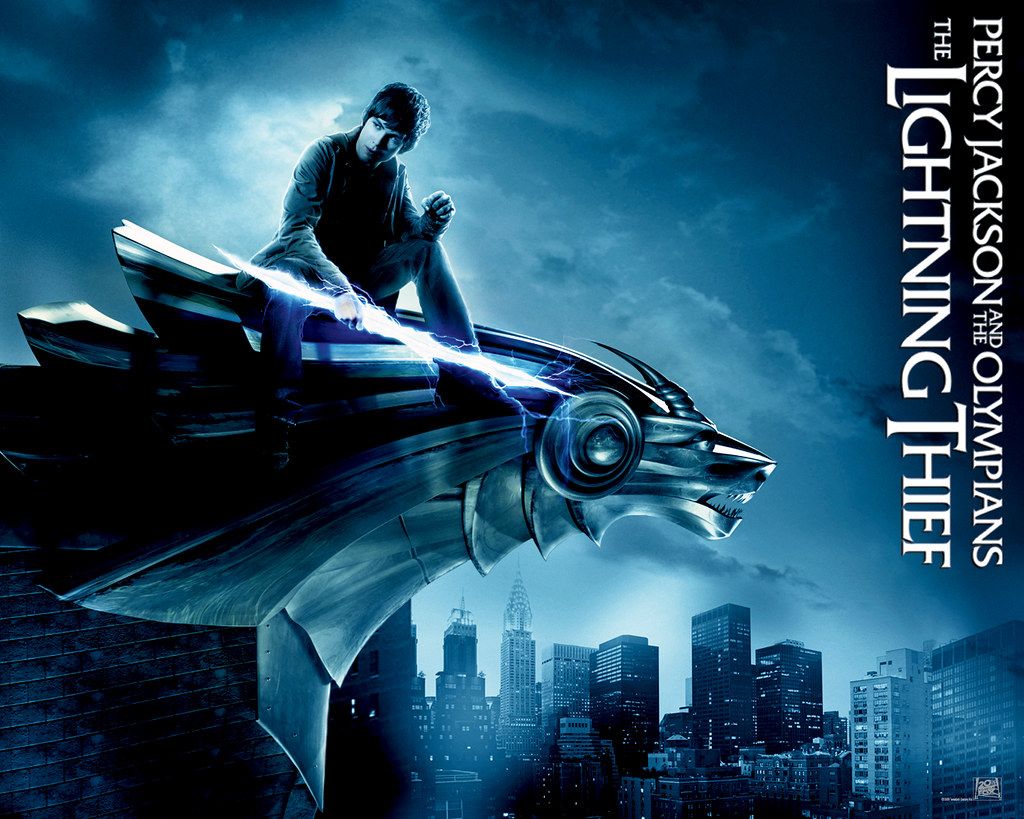
2. **Percy Jackson & the Olympians: The Lightning Thief**If you ever wondered what Greek mythology would look like if it collided with a modern coming-of-age story, then “Percy Jackson & the Olympians: The Lightning Thief” offers a captivating answer. This fantasy adventure film brilliantly “blends Greek mythology with a coming-of-age story,” creating a universe where ancient gods and mythical creatures inhabit a contemporary world. It’s an imaginative leap that recontextualizes classic lore for a new generation.
The premise itself is an immediate hook: a 12-year-old Percy Jackson discovers he’s the son of Poseidon and finds himself accused of a cosmic crime – stealing Zeus’s powerful lightning bolt. This modern twist on divine paternity and high-stakes accusations is pure cinematic invention, building upon the foundational myths to create a fresh mystery. His cross-country journey with a satyr and Athena’s daughter introduces iconic figures of Greek lore, like Medusa and the Minotaur, but within a thoroughly modern American landscape.
As Percy navigates these encounters, the film focuses on his personal growth and his struggle to “come to grips with his incredible powers and destiny.” It’s less about a faithful historical retelling and more about the internal journey of a young hero caught between two worlds. By shifting the narrative from ancient Greece to a contemporary setting, “Percy Jackson” invents a new, accessible mythos around these legendary figures, proving that old stories can always find new life.
Read more about: Top 15 Movies Inspired by Greek Mythology: Gods, Heroes, and Epic Tales
3. **300**The legendary Battle of Thermopylae, a cornerstone of ancient Greek history, receives an unapologetically bold and stylized treatment in the film “300.” Rather than a straightforward historical documentary, this movie plunges viewers into a hyper-visualized interpretation, chronicling “the heroic stand of Spartan King Leonidas and his elite force of 300 warriors against the overwhelming Persian army.” The context emphasizes a “stylized portrayal of brutal combat” and “balletic violence,” which dramatically reshapes how this historical event is perceived.
The film’s aesthetic choices are central to its myth-making. We witness “the half-naked, chiseled Spartan warriors fighting to the death through waves of Persian archers and warriors,” a depiction that transforms the gritty realities of ancient warfare into a visually striking, almost fantastical spectacle. This isn’t just showing facts; it’s creating a visceral, operatic legend around a historical stand, imbuing it with a specific, heightened sense of heroism and sacrifice.
“Driven by their unwavering warrior code, the 300 Spartans embrace glorious sacrifice over submission,” a theme amplified by the film’s “innovative visuals and balletic violence.” “300” doesn’t merely recount history; it sculpts a potent, cinematic myth of Spartan defiance. It’s a film that celebrates “militaristic machismo” and etches “the fierce Spartan legacy into history’s annals,” not through dry facts, but through a visually inventive narrative that leaves an indelible mark on popular culture.
Read more about: 15 Vehicles Owners Wish They’d Never Bought: Your Essential Guide to Avoiding Automotive Regrets
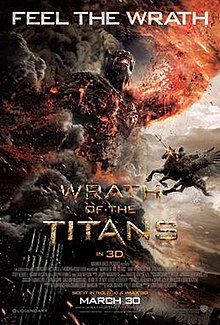
4. **Wrath of the Titans**Picking up a decade after the events of its predecessor, “Wrath of the Titans” further delves into the tumultuous world where divine powers and mortal struggles are deeply intertwined. The film’s narrative is propelled by Perseus, who, despite having “turned his back on the gods,” is compelled back into action. His reluctant return is sparked by the nefarious schemes of Hades and the underworld forces, who conspire to capture Zeus, plunging the world into chaos.
As Zeus’s life force drains, the film graphically illustrates the ensuing global turmoil: “mountain titans awaken and nature revolts against humanity.” This apocalyptic scenario is a dramatic expansion of the mythological stakes, pushing the boundaries of the original myths to create an immense, world-threatening conflict. Perseus, heeding Andromeda’s desperate plea, embarks on another “perilous quest into the Underworld,” forging unexpected alliances, including one with the fallen god Ares.
“Wrath of the Titans” is described as a “sweeping mythological saga where gods and mortals intertwine amidst a celestial struggle for power.” It’s a narrative that revels in grand-scale battles against “legions of monsters and menacing foes,” and features “shocking betrayals and fathomless sacrifices.” This film continuously builds upon and reimagines the scope of Greek myths, crafting a compelling, albeit largely fictionalized, epic that prioritizes dramatic tension and visual spectacle over historical or even strict mythological adherence.
Read more about: 15 Epic Films: Journey Through Mythology, Ancient Worlds, and Fantasy
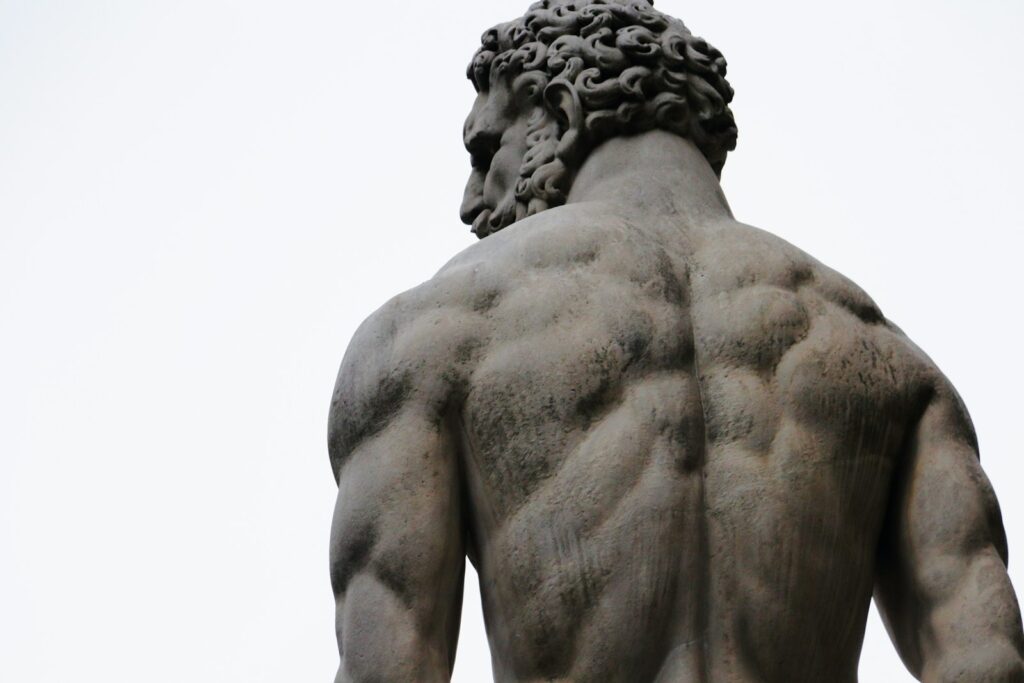
5. **Hercules**The timeless Greek myth of Hercules, the demigod renowned for his strength, finds a vibrant and distinct retelling in Disney’s animated feature, “Hercules.” This film reimagines the classic hero’s journey through a unique lens, presenting him as “robbed of his divine birthright by Hades’ criminal scheme.” This particular narrative framing—a scheming Hades and a Hercules unaware of his true strength—is a creative departure that sets a different tone from many traditional accounts.
The film focuses on Hercules’s profound journey of “self-discovery,” a path aided by the satyr Philoctetes and the spirited Megara. This dynamic trio, along with a cast of memorable side characters, transforms the often-solemn tales of Hercules’s labors into a more approachable and often humorous adventure. The narrative arc where “Hercules must harness his latent abilities to become a true hero” while Hades plots to “overthrow Zeus by unleashing the monstrous Titans” creates a compelling, if simplified, interpretation of divine power struggles.
“Hercules” is explicitly labeled a “musically-driven fable” that “explores themes of forging moral character, sacrifice, rebirth, and the nature of mortal-immortal soulmates through the prism of Greek lore.” The “fable” designation itself highlights its status as an interpretative, rather than literal, account. By infusing the story with catchy songs, witty dialogue, and a clear moral arc, the film doesn’t just present a myth; it creates an entirely new, family-friendly myth around one of ancient Greece’s most famous figures, making it accessible and beloved for generations of viewers.
Read more about: Beyond the Clouds: 14 Incredible Airplane Types Every Curious Traveler Should Know!
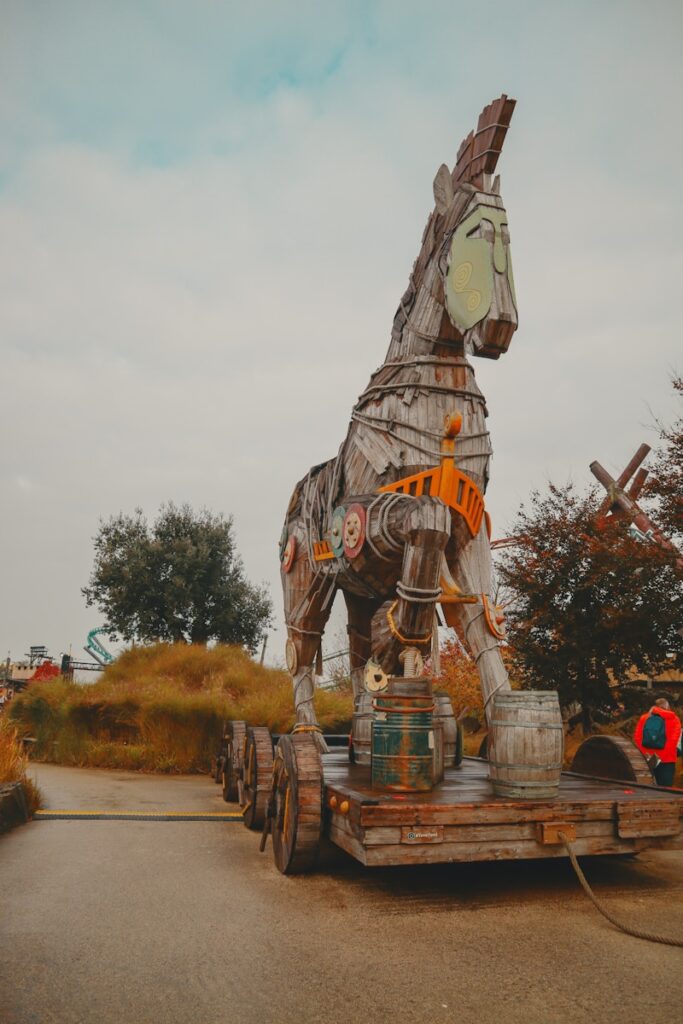
6. **Troy**When we think of epic ancient battles, the Trojan War instantly springs to mind, and “Troy” delivers a dramatic cinematic interpretation of this legendary conflict. The film’s inciting incident, “Trojan prince Paris steals the ravishing Helen away from her Spartan king husband Menelaus,” immediately sets a high-stakes emotional tone. It’s a tale of passion, honor, and the colossal consequences of personal choices, resonating deeply with audiences.
However, “Troy” is not presented as a historical document but as “a more dramatic retelling of the Trojan War.” Our source explicitly notes that the film “takes liberties with the source material, emphasizing human emotions over divine interventions.” This is a crucial point in understanding how the movie constructs its own narrative. While gods are central to the original myths, the film deliberately shifts focus, making the human elements – “honor, love, and betrayal” – the driving force.
This approach allows for a connection with characters like Achilles and Hector on a more personal, relatable level. The “relentless Greek forces lay siege to Troy’s towering walls,” culminating in “a brutal quagmire of post-traumatic savagery, shifting alliances, twisted jealousies, and shattered moral codes.” By downplaying the direct intervention of the gods and spotlighting mortal passions, “Troy” reinvents the legend, crafting a powerful human drama that, while based on ancient myth, offers a distinct cinematic legend of the Trojan War.
Moving beyond the initial explorations of Greek myths and legendary battles, our journey continues to uncover more cinematic wonders that have ingeniously woven their own versions of ancient narratives. These films, while drawing from diverse cultural legends and biographical accounts, each craft distinct interpretations that skillfully blur the lines between reality, folklore, and pure fantasy. It’s truly fascinating how these storytellers build upon the foundations of the past to construct narratives that resonate profoundly with today’s viewers, inviting us to ponder the enduring power of myth-making.
Read more about: The Ultimate ‘I Do’ Crew: 14 Celebrities Who Proved Love is Worth Every Walk Down the Aisle!
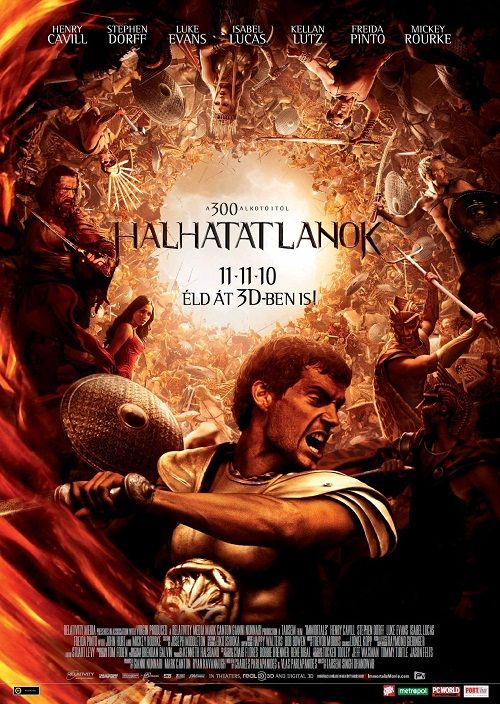
7. **Immortals**In ancient Greece, a ruthless King Hyperion leads his merciless army on a desperate quest to unearth the powerful Epirus Bow, a relic capable of unleashing the cruelly imprisoned Titans upon the world. This would, of course, plunge everything into apocalyptic chaos under Hyperion’s tyrannical rule. The last sliver of hope, surprisingly, rests upon Theseus, a skilled warrior chosen by the gods themselves to stand against this impending doom.
Aided by the wise Oracle Phaedra and a small but determined band of rebels, Theseus rallies the scattered Greeks. Their shared vision is to unite and fight back against Hyperion’s destructive campaign, transforming a mythological threat into a collective human struggle. This grand, unifying effort sets the stage for an epic conflict, where the fate of their civilization hangs precariously in the balance against overwhelming odds.
The film masterfully “weaves visionary fantasy, hyperreal action, vengeance, and sacrifice,” transforming ancient Greek lore into a visually stunning spectacle. “Immortals” isn’t just about recounting a myth; it actively reinterprets it, examining the profound struggle of mortals rising against oppression and the “transcendental power of heroic endurance” that historically shaped Greek civilization. It’s a testament to how creative storytelling can build a new layer of legend upon the bedrock of ancient tales.
This cinematic rendition crafts its own potent myth, focusing on the heightened drama and visceral action rather than historical accuracy. By depicting gods as fallible and mortals as capable of monumental heroism, the movie reshapes the traditional narrative, offering a fresh, modern perspective on the eternal conflict between good and evil, and the ultimate triumph of the human spirit when pushed to its limits.
Read more about: Beyond the Crown: 12 Truly Wild and Undignified Royal Deaths That Will Blow Your Mind
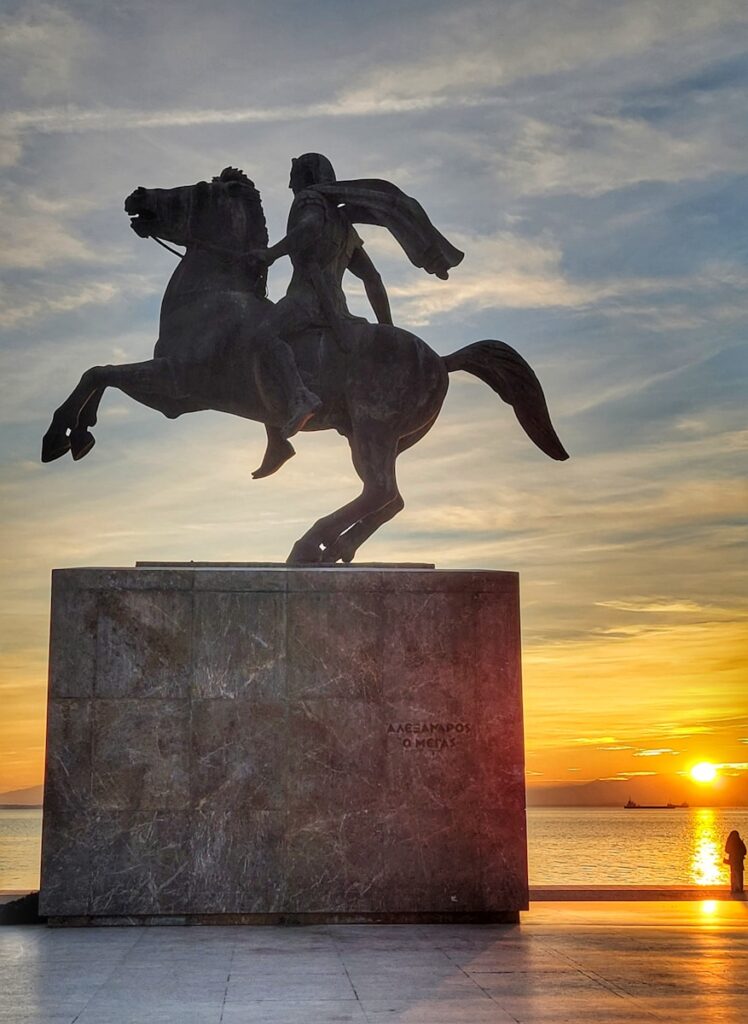
8. **Alexander**Oliver Stone’s “Alexander” is an epic biographical film that paints a sprawling portrait of one of history’s most legendary conquerors, Alexander the Great. The movie meticulously tracks Alexander’s meteoric ascent to power, from his early days learning under Aristotle to his eventual coronation as King of Macedonia. It then embarks with him on his relentless, world-changing campaign to conquer the vast, known world, reshaping empires and cultures in his wake.
The film delves deep into “Alexander’s complex relationships” – particularly with his formidable mother, Olympias, his powerful father, King Philip II, and his fiercely loyal general and confidante, Hephaestion. It highlights pivotal moments, from his intellectual tutelage to his sweeping conquests across Asia, showcasing his boundless ambition. Yet, amidst his triumphs, Alexander faces intense internal strife, treacherous betrayals, and monumental battles against formidable foes like King Darius of Persia.
“With stunning cinematography, intense battle sequences, and a stellar cast led by Colin Farrell as Alexander, the film captures the grandeur and the human drama of one of history’s most captivating figures.” While based on a historical figure, Stone’s interpretation is a grand cinematic reimagining. It takes the known facts and weaves them into a compelling narrative, emphasizing the psychological toll of leadership and the personal struggles behind the historical triumphs.
Biographical films, even when meticulously researched, inherently introduce an element of myth-making. “Alexander” is no exception; it crafts a specific legend of the man, focusing on certain characteristics and events to build a dramatic arc. This isn’t a documentary, but a powerful interpretation that solidifies Alexander’s place as a larger-than-life figure in popular culture, offering a distinct cinematic myth that blends historical accounts with narrative artistry and dramatic license to evoke his enduring legacy.
Read more about: The Ultimate ‘I Do’ Crew: 14 Celebrities Who Proved Love is Worth Every Walk Down the Aisle!
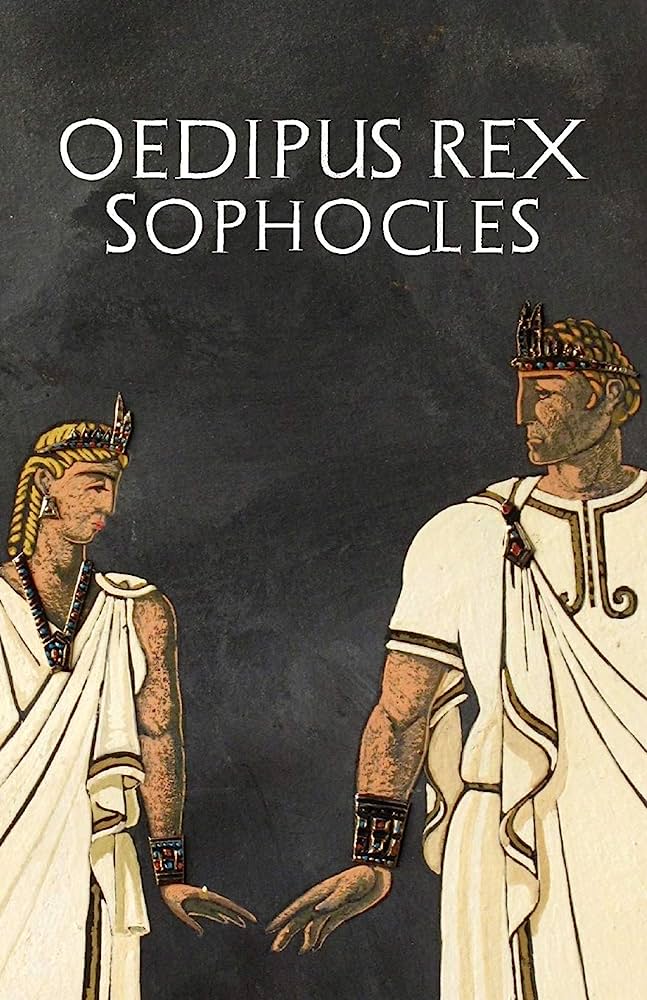
9. **Oedipus Rex**”Oedipus Rex,” directed by Pier Paolo Pasolini, is a classic tragedy brought to the screen, drawing directly from the timeless Greek myth by Sophocles. The film unflinchingly tells the tragic story of Oedipus, the noble king of Thebes, who finds himself entangled in a horrifying prophecy. Unbeknownst to him, this prophecy foretells that he will commit the unspeakable acts of killing his own father and marrying his own mother, sealing his doomed fate.
As a mysterious plague ravages his beloved city, Oedipus embarks on a desperate quest to uncover the truth behind the devastation. This journey, however, slowly and agonizingly reveals horrifying secrets about his true identity and his past, meticulously pulling back the curtain on the prophecy’s chilling fulfillment. Despite his fervent efforts to escape his fated destiny, Oedipus is inexorably drawn into a tragic spiral of betrayal, self-destruction, and unbearable revelation.
“With its powerful themes of fate, free will, and the consequences of hubris, Oedipus Rex is a gripping exploration of the human condition that continues to resonate with audiences centuries after its original telling.” The film’s raw, visceral interpretation of the ancient myth serves to magnify its core philosophical questions, creating a potent cinematic experience. It’s less about showing historical facts and more about vividly reinterpreting an foundational narrative for a new medium, making the ancient tragedy feel immediate and impactful.
This adaptation exemplifies how deeply entrenched myths can be retold, not as mere historical accounts, but as profound explorations of human nature and destiny. Pasolini’s film invents a modern visual language for an ancient story, ensuring its powerful themes continue to provoke thought and discussion, solidifying its place as a cornerstone of both theatrical and cinematic myth-making that transcends its original context.
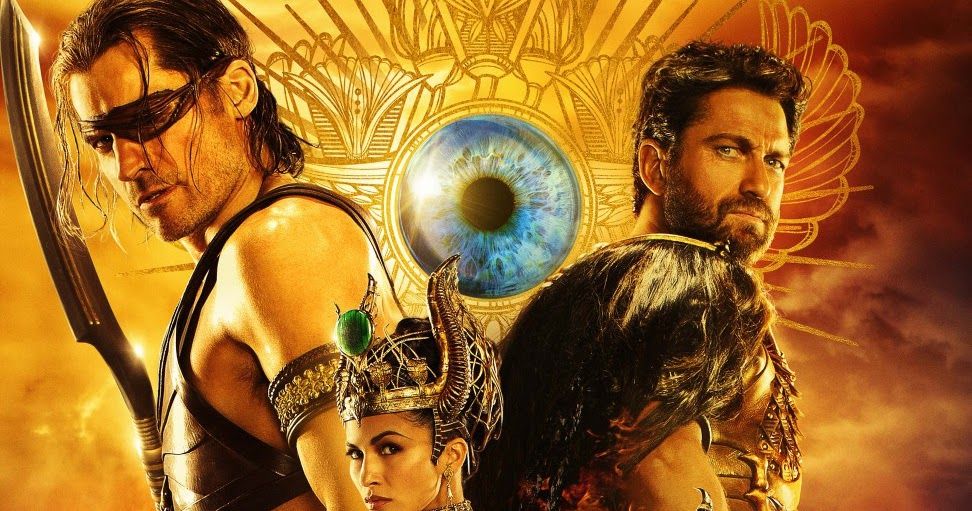
10. **Gods of Egypt**”Gods of Egypt” plunges viewers into an imaginative, albeit highly stylized, world where the pantheon of Egyptian gods interacts dramatically with mortals. This movie vividly brings ancient Egyptian mythology to the big screen, allowing audiences to dive headfirst into a realm where deities like Ra and Set battle for cosmic control. It’s a grand spectacle that, right from the start, signals its intention to play fast and loose with historical and even strict mythological accuracy.
The film serves as a visually stunning, though creatively liberal, introduction to some of the most powerful figures in the Egyptian pantheon. It takes the essence of these ancient beings – their connection to natural forces, their immense power, and the moral struggles they represent – and amplifies them for blockbuster appeal. While the names are familiar, “Gods of Egypt” often takes “creative liberties” with the source material, portraying these deities in ways that prioritize dramatic conflict and visual extravagance.
“Gods of Egypt” isn’t aiming for a scholarly deep dive; it’s crafting an action-packed fantasy. By doing so, it invents a modern myth of Egyptian gods, prioritizing dramatic flair and impressive CGI battles over a faithful historical or traditional account. This makes for an entertaining watch, but it also shapes a new, often simplified, public perception of these intricate ancient beliefs, crafting a distinct cinematic version of the myths.
This cinematic enchantment reinterprets complex cultural legends into accessible narratives. It emphasizes visual grandeur and epic confrontations, effectively building a new “myth” around the ancient stories for today’s global audience. This adaptation process shows how much creative license filmmakers take when translating the rich tapestry of ancient Egyptian beliefs onto the silver screen, proving that entertainment often trumps strict adherence to source material.
Read more about: Royal Rings: Unearthing the Stories Behind 12 Symbolic Bands That Sealed Deals and Dynasties
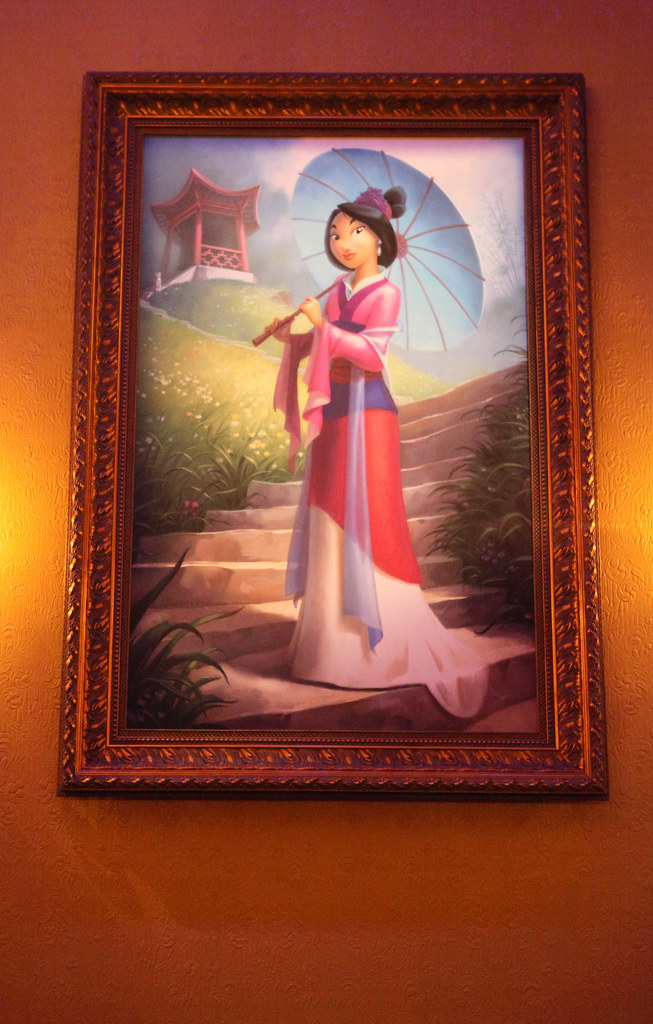
11. **Mulan**Disney’s “Mulan,” both the animated classic and its live-action counterpart, beautifully showcase themes of bravery, honor, and the intricate gender roles prevalent in traditional Chinese society. This compelling tale draws from the legendary figure of Hua Mulan, a folk hero whose story has inspired generations, captivating audiences with her extraordinary courage and unwavering spirit.
The core narrative centers on a young woman who makes a profound decision: she disguises herself as a man to take her ailing father’s place in battle. This act of profound sacrifice and courage forms the heart of the legend, making Mulan an enduring symbol of defiance and strength. The film skillfully captures this central premise, bringing a beloved figure from Chinese folklore to a global audience with powerful emotional resonance.
While deeply rooted in Chinese legend, the cinematic versions of Mulan often infuse modern sensibilities and Western storytelling techniques. They interpret the historical and cultural contexts, sometimes streamlining complex narratives or adding new characters and plot points to fit a broader appeal. This process effectively creates a distinct “Mulan myth” for contemporary viewers, solidifying a particular version of her story in the popular consciousness.
By presenting Mulan’s journey through a visually engaging and emotionally impactful lens, the film transforms a traditional legend into an international icon. It showcases how ancient Asian myths can be re-imagined and, in essence, reinvented, to explore universal themes of identity and heroism. This adaptation process ensures that Mulan’s story remains eternally fresh and relevant, proving that cinematic storytelling can forge new legends out of old.
Read more about: From Audition Rejects to A-Listers: The Shocking Stories of Stars SNL Missed Out On!
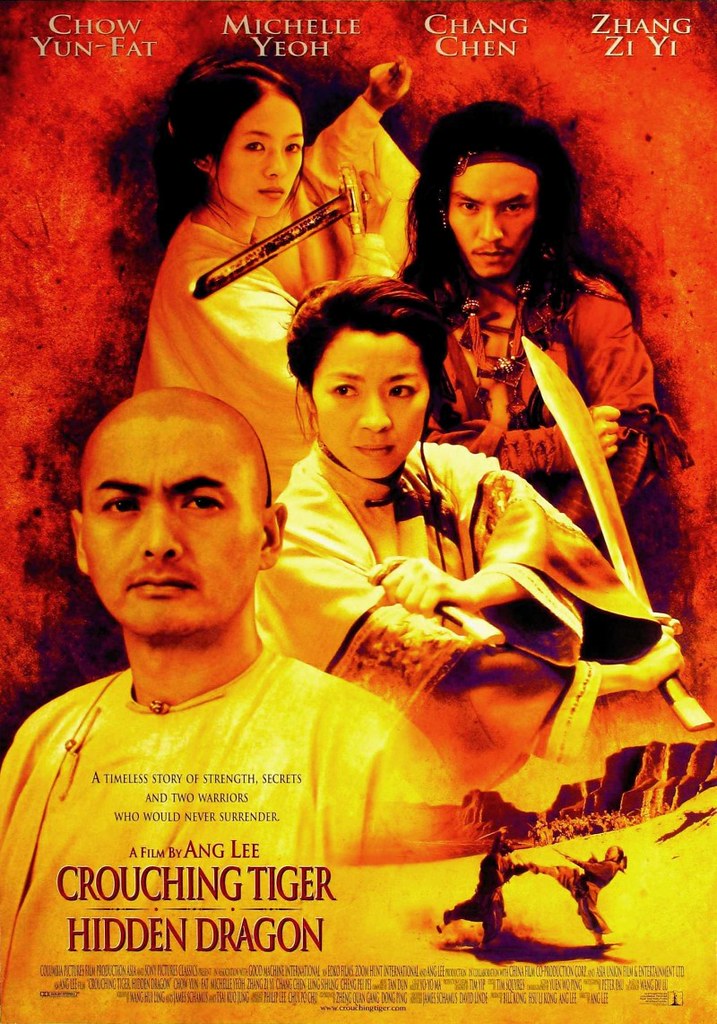
12. **Crouching Tiger, Hidden Dragon**”Crouching Tiger, Hidden Dragon” isn’t just a film; it’s a breathtaking cinematic poem that immerses us in the world of wuxia, a genre incredibly rich with Chinese martial arts legends. This movie masterfully intertwines profound themes of forbidden love, unwavering honor, and the unpredictable threads of destiny, captivating audiences with its deep emotional resonance and philosophical undertones.
The film’s visual splendor and unparalleled choreography are absolutely iconic, transforming intense fight sequences into fluid, almost balletic dances across rooftops and bamboo groves. It not only celebrates the artistry and philosophy behind martial arts but also delves deeply into the complexities of human desires and relationships, showcasing the internal struggles and personal sacrifices of its memorable characters with remarkable grace.
While drawing extensively on existing wuxia narratives and traditional Chinese folklore, “Crouching Tiger, Hidden Dragon” distinctly crafts its own unique cinematic legend. Director Ang Lee’s vision reinterprets the genre, infusing it with a poignant drama and a lyrical aesthetic that elevated traditional Chinese storytelling to global acclaim. It’s a fresh take, building a new, revered myth around the established wuxia tropes, rather than simply recounting historical events.
The film’s immense international success did more than just renew interest in wuxia; it established a new benchmark for how ancient legends could be adapted with profound artistry and universal appeal. It proves that by blending authentic cultural elements with innovative storytelling and breathtaking visuals, filmmakers can create new legends that resonate across diverse audiences, forever shaping the perception of these ancient tales in the modern cinematic landscape, making them feel both timeless and brand new.
Read more about: From Screen Sirens to Super Warriors: Actresses Who Mastered Extreme Physical Transformations for Unforgettable Roles
And so, as our cinematic journey through ancient history comes to a close, we’re left with a powerful realization: these aren’t just movies; they’re modern myth-makers. From the divine squabbles of Greek gods to the legendary exploits of Chinese warriors, filmmakers continue to draw from the boundless wellspring of antiquity, not merely to recount the past, but to reinvent it. They craft vibrant, often fantastical narratives that resonate deeply with contemporary audiences, offering fresh perspectives on heroism, destiny, and the human spirit. It’s a testament to the enduring power of storytelling that these ancient tales find new life, proving that sometimes, inventing a new myth is the most compelling way to connect us to history. These films, in their glorious blend of fact and fiction, ensure that the legends of yesterday will continue to captivate and inspire the generations of tomorrow.




